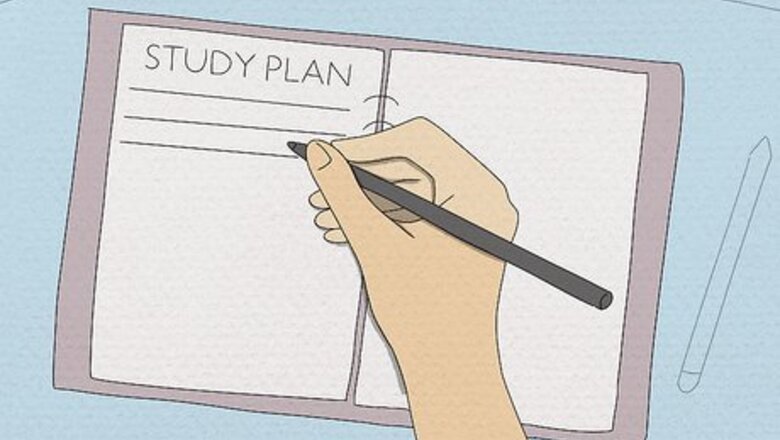
views
Creating Good Study Habits
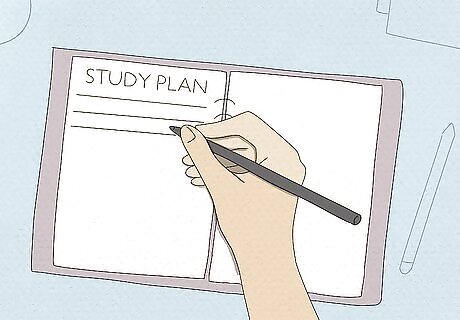
Make a plan. Creating a good study plan is essential to stress free studying. Make a list of all of the schoolwork and studying that you need to accomplish and the deadlines for each item. Then, map out a plan to complete all of the work. Consider keeping a planner for your schoolwork. Add all of the assignments and tests to this planner when they are announced in the classroom. This will help to prevent surprises that could interrupt your study plan.
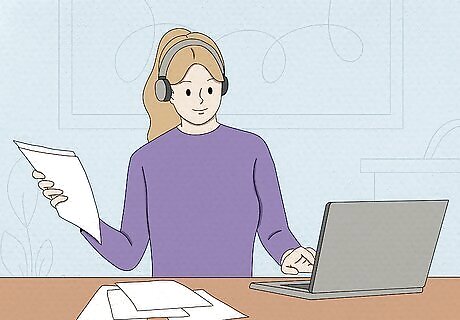
Pace yourself. Don’t wait until the last minute to study for an upcoming test. Study a little bit every day and then review the entire topic before your test. Although it can be motivating to cram the night before an exam, it can also create a tremendous amount of stress. Review your notes every evening. Keep up with your class assigned reading.
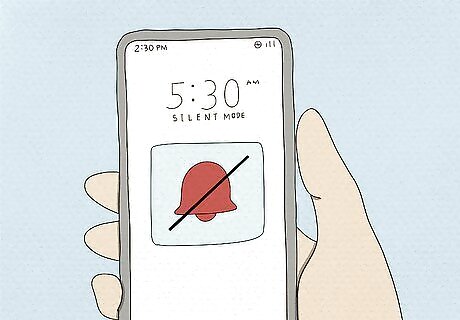
Remove distractions. If you are distracted by your phone, tv, or facebook, get rid of them. These distractions can make studying take longer. As the hours pass by you will become more stressed since you have not covered all of the material that you need to cover. Distraction free studying will give you more quality studying time. Log out of your Facebook, Twitter, email, and other social media so that you don’t receive notifications on your computer. You may even consider using an app to help keep you on track and reduce distractions while working on your computer. Turn your phone off or on silent and put it out of reach. Turn off the tv.
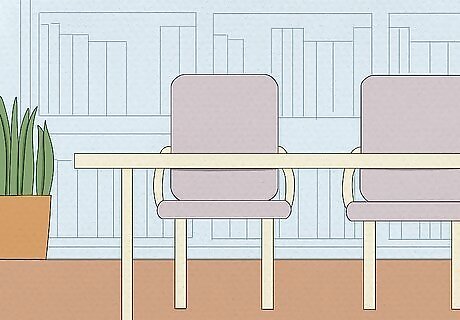
Choose a good study spot. Being in an environment that will help you to stay focused is another great way to promote study success. This environment will depend on what usually works best for you. Experiment with different types of environments to find what works best for you. For example, you might find that you can focus better when you are in a quiet environment, such as a quiet corner in the library or alone in your bedroom. Or, you might find that you study better when there is some background noise and commotion, such as in a coffee shop or at the kitchen table in your home. Avoid studying in places where you typically relax or sleep. For example, studying on your bed might not be a good idea because your brain associates your bed with sleep. By studying there, you might get tired while studying, or you might start to have trouble sleeping because you have been studying in bed.
Taking Care of Your Body
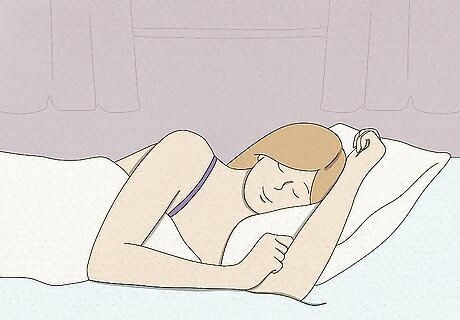
Be sure to get enough sleep. You will not remember all of the material that you are studying if you are sleep-deprived. Although it may seem helpful to stay up all night to cram for an exam the next day, you will quickly learn that you are too tired the next day to do a good job on the exam. When you are making your study plan, be sure to schedule an inadequate time to rest. Try to get eight hours of sleep each night. Take a power nap in the middle of the day for an extra boost in energy. A quick 30-minute nap can really help improve your motivation if you are too tired to be productive.
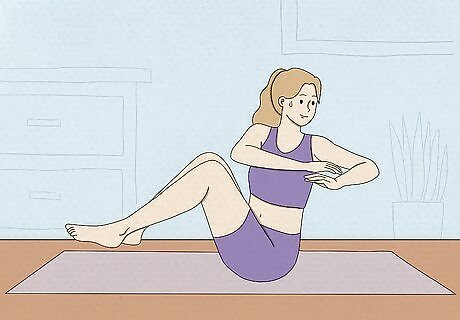
Don’t forget to exercise. Exercise increases your production of endorphins, which is the “feel-good” hormone. Exercise can also help to improve your sleep. A regular exercise routine will relieve study stress, as well as other stress that you are managing. Don’t forget to incorporate time to exercise in your daily schedule.

Nourish your body. It is hard to learn when you are hungry. Don’t miss meals, even if you are trying to save time to spend more time cramming before an exam. You will not be able to retain as much information if you have not had a nutritious meal.
Using Relaxation Techniques
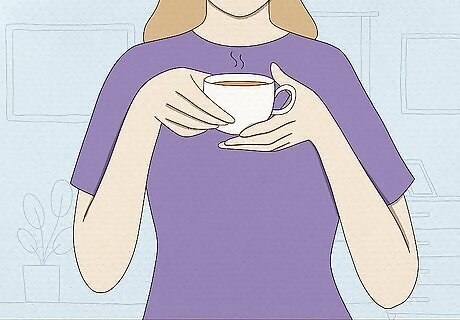
Drink some tea. Tea is very calming. Drinking hot tea while you study or while you take a break from studying can help you feel more relaxed and less stressed. Studies show that black tea is the most effective for relaxation. Avoid drinking too much coffee or caffeinated beverages because these may cause you to crash later on.
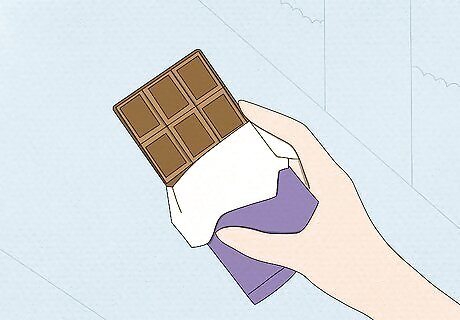
Eat some dark chocolate. Not only is dark chocolate tasty, it also helps to decrease the level of cortisol in your body. Cortisol is the hormone that is responsible for stress. This, in turn, will make you feel more relaxed. In order for this step to be effective the chocolate must contain 70% cocoa.

Take a break. You must find a balance between your schoolwork and your life. To do this you must take breaks from studying and spend those breaks not thinking about studying. Use this time to get some rest, exercise, or a bite to eat. Make studying goals so you can reward yourself once you complete them. For instance, after an hour of studying give yourself a 15-minute break. Take a walk outside. The walk will give you some exercise as well as some much needed sunlight. Sunlight is known to help improve your mood. Go out to dinner with some friends. Be sure to laugh, smile, and talk about things other than your schoolwork. Take a vacation or a stay-cation. Schedule yourself a day off from studying each week.
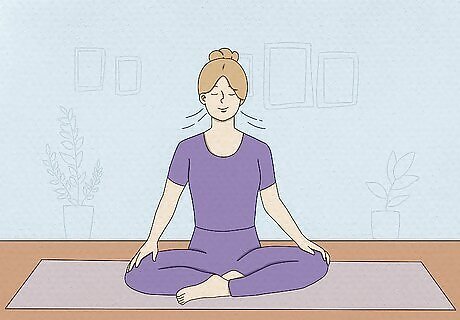
Practice your deep breathing. Deep breathing is also known to reduce cortisol levels in your body. It is also shown to reduce your blood pressure. This will help you to relax and feel lower levels of stress and anxiety. Use the 7-7-7 relaxation technique. Close your eyes. Take a deep breath in through your nose and count to seven in your head. Release that breath through your mouth and count to seven again in your head. Repeat this seven times.
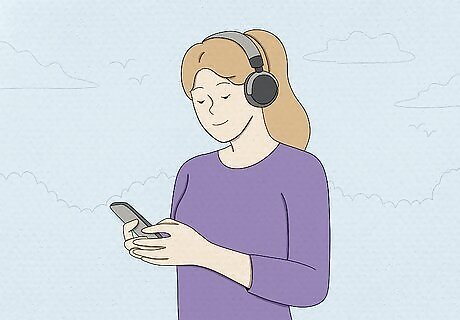
Listen to music. Listening to a calming music, such as classical music, can help to improve your mood and make you feel happier. Listening to music may also help you to study longer. Avoid distracting music such as hard rock or metal. Classical or ambient music is the best option.
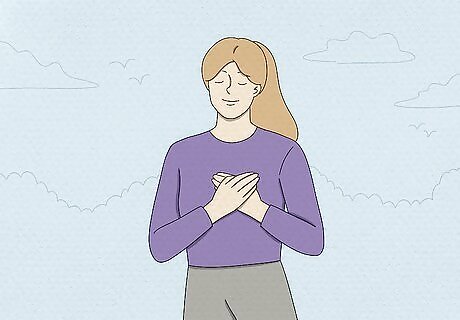
Use positive self-talk. If you are going to be successful, you need to be confident in your abilities. Negative thoughts and attitudes toward studying will undermine your efforts. Avoid engaging in these conversations with your friends, too. Avoid saying or thinking things like “I can’t get this no matter how much I study.” If the project seems overwhelming, just focus on one task at a time. Try not to think about the project as a whole or you may feel stressed and experience an increase in negative self-talk.
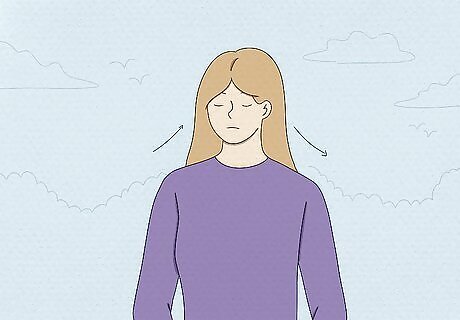
Use visualization techniques to relax. Close your eyes and feel the tension in your body. Breathe deeply in and out through your nose. Picture yourself in a relaxing place. Allow your body to let go of the tension that you feel. This will bring you down to a lower level of stress, and improve your studying and/or test taking abilities.


















Comments
0 comment